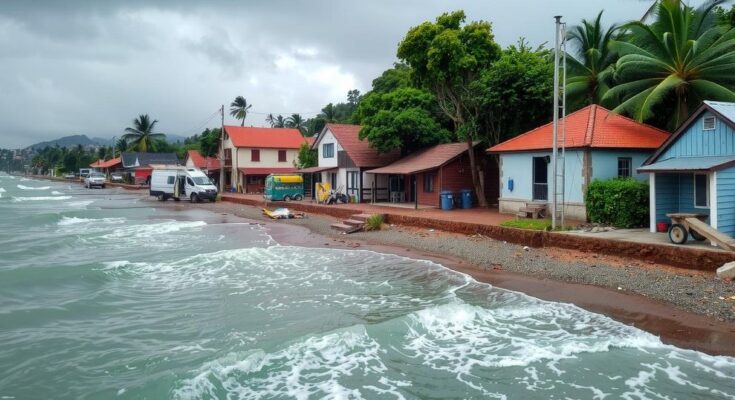Brazil has emphasized the need for global adaptation efforts in response to Cyclone Chido’s devastation in Mayotte, which underscores the escalating impacts of climate change. The Brazilian government has expressed condolences and solidarity while advocating for stronger international action to help mitigate climate-related disasters and promote sustainable policies, particularly as it prepares for its role as host of the upcoming COP30 conference in 2025.
The recent devastating impact of Cyclone Chido on Mayotte, a French archipelago in the Indian Ocean, has drawn international attention towards the urgent need for enhanced adaptation strategies for climate change. Brazil, which recently held the G20 presidency and is scheduled to host the forthcoming UN climate change conference, COP30, in Belem, has articulated its call for collective global action to address the severe consequences of climate change. The Brazilian foreign ministry extended heartfelt condolences to those affected by the cyclone, which is reported to have claimed several hundred lives and is considered the worst storm to strike Mayotte in nearly a century.
Brazil’s expression of solidarity extends not only to the victims’ families but also highlights the broader implications of natural disasters exacerbated by climate change. The archipelago, home to approximately 320,000 residents, many of whom reside in precarious living conditions, is emblematic of the vulnerabilities faced by developing regions. The Brazilian government has reiterated its commitment to play a leading role in advocating for international measures to meet climate targets, such as reducing greenhouse gas emissions and combating deforestation in the Amazon rainforest.
Furthermore, Brazil’s agenda includes pressing wealthier nations to increase their financial contributions to assist developing countries in confronting climate-related challenges. This proactive stance was evident at the recent COP29 summit in Azerbaijan, where Brazil championed greater accountability among affluent nations regarding climate funding. As Brazil anticipates hosting COP30 in November 2025, it remains focused on fostering global partnerships to magnify the efforts against climate change, particularly in the face of recurring natural disasters.
The article discusses Brazil’s response to the calamity caused by Cyclone Chido in Mayotte, emphasizing the country’s stance on climate change adaptation. The cyclone has inflicted severe damage in an area particularly vulnerable to climate-related events, necessitating a renewed focus on robust international cooperation for climate resilience. Brazil’s leadership role in global climate negotiations and its efforts to reduce deforestation in the Amazon are central to the broader narrative of combating climate change effectively.
In conclusion, the devastating impact of Cyclone Chido serves as a stark reminder of the urgent need for global action to adapt to climate change. Brazil’s proactive response reflects its commitment to international cooperation and solidarity with affected nations. By emphasizing the necessity for stronger financial support from wealthier countries and advocating for ambitious emissions targets, Brazil is positioning itself as a leader in the climate change dialogue, especially as it prepares to host COP30 in 2025.
Original Source: www.barrons.com




